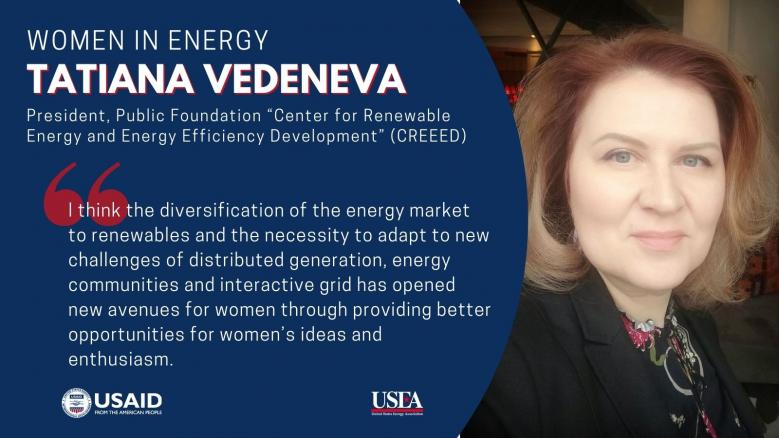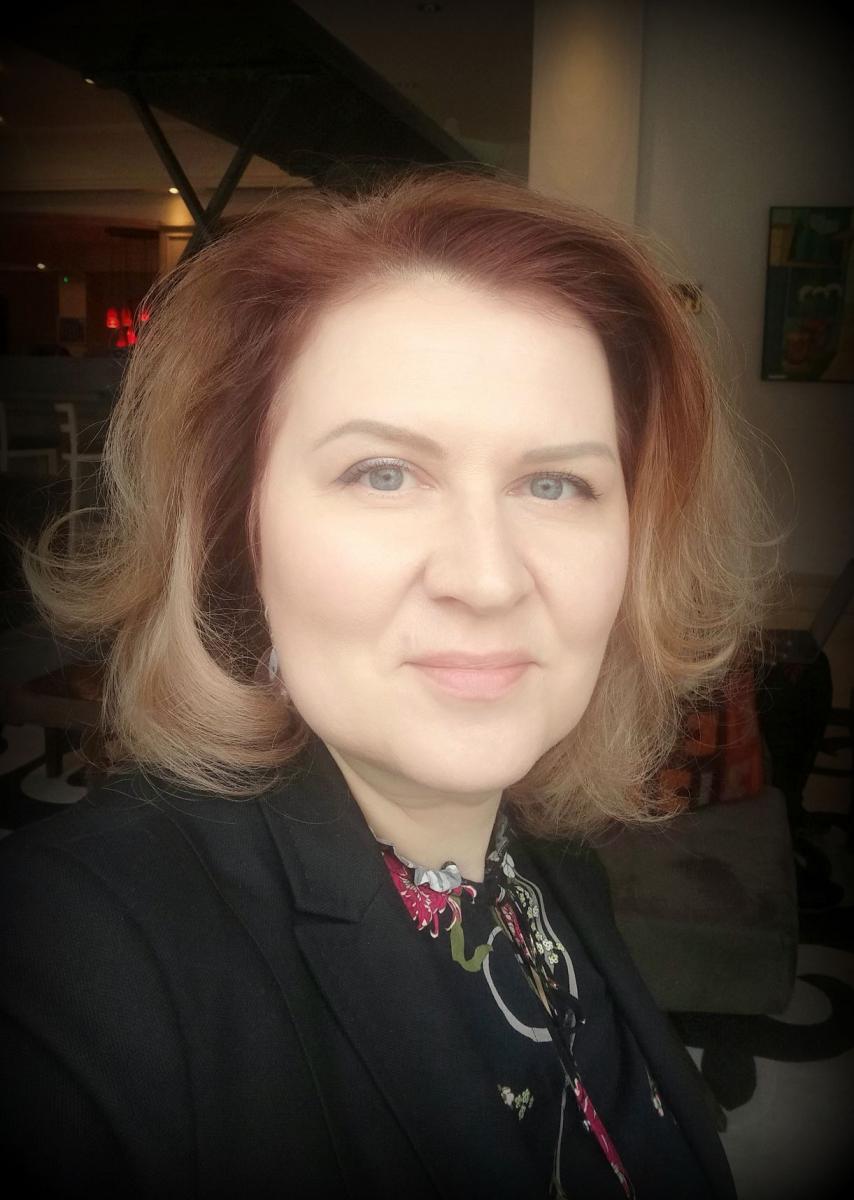
Women In Energy: Tatiana Vedeneva
The Women in Energy series is a joint project between USEA and USAID that was developed out of USEA’s Engendering Utilities Partnership, a program funded by USAID to improve gender policies and gender outcomes at their respective organizations.

Every month we feature a woman who has shown exemplary leadership. The women highlighted come from diverse backgrounds and roles, and they bring with them a unique perspective to gender equality within the energy sector.
1. How have both your education and career path led you to where you are now?As a teenager, having well developed mathematical and artistic sides, I wanted to combine them and become an architect to create ergonomic and beautiful buildings. However, when it was time to choose University, the turmoil of 1990’s in the ex-Soviet countries meant that Economics and Legal studies were almost the only professions that were demanded by the market. I have listened to my parent’s advice and enrolled for an Economics degree in Kyrgyzstan, later transferring to the University of Manchester and completing BSc in Economics and MA in Finance. My main interest after graduation was development of mathematical models to work with financial markets, so I have decided to continue my studies in Mathematics and IT in Tuebingen University, Germany. However, as my studies grew more and more theoretical and abstract, it became more and more clear, that what I wanted to have as a result of my work had to be something practical and tangible that would bring immediate value. Something that would have a positive effect on environment and human development, and not just involving moving finances from less to more profitable investments.
Therefore, I have decided to quit my studies and return to Kyrgyzstan to see what I can do for development of my country. I have started my professional carrier, working as a Project manager for PF “Fluid”, local biogas technology developer, and as a Consultant to the Member of Parliament of the Kyrgyz Republic. Both of these tenures brought me closer to understanding what I wanted to do, and I have gradually understood that renewable energy is something that I wanted to research, promote, develop, build and maintain.
Thus, after gaining more experience in project and organizational management, as well as various renewable energy sources, together with other renewable energy professionals, I have co-founded Center for Renewable Energy and Energy Efficiency Development (CREEED) in 2012, and am leading to this day. In fact, on February 6th, 2022 the Center will celebrate its 10th Anniversary, and we are coming to this date with a wealth of experience gained through successful implementation of over 30 projects and contracts, with total value of over 1 million USD.
2. What obstacles have you experienced as a woman pursuing an education and career in the energy industry? What obstacles do women vying for leadership spots face in this sector?
Not being an engineer by education, I could not lead in the technical aspects of technology adaptation, development, research, installation and repair. However, I found that through a good understanding of technical aspects, benefits and limitations of technologies, as well as appreciating the needs and circumstances of beneficiaries, I bring a lot of value by improving communication between technical specialists and clients, be these client rural households, companies, international organizations or government officials.
Improved communication includes a wide variety of activities, starting from needs assessment and correctly formulated terms of reference and managing development of feasibility studies, projects involving procurement and production of technical solutions, installation and maintenance services, applied research, to development of legislation, setting the rules of the game for all stakeholders of the renewable energy market.
I think the reason that women may face obstacles in energy sector is yet limited number of them understanding the value that they can bring with their knowledge and specific abilities to resolve existing issues in the energy sector, and move it forward.
3. Technology is transforming the traditional utility business model into a more modern interactive grid. Some utilities view this transformation as an opportunity to focus on innovation and diversity, which research has shown to drive better business performance. How is your organization attracting, retaining, and promoting more women into senior management positions to respond to this industry transformation? Is company data on this publicly available?
CREEED PF is a small NGO, so we do not have a corporate ladder to climb, but we are always considering the gender aspect when choosing beneficiaries or experts that we work with.
4. What changes in the sector at large do you think have launched more women into leadership positions?
I think the diversification of the energy market to renewables and the necessity to adapt to new challenges of distributed generation, energy communities and interactive grid has opened new avenues for women through providing better opportunities for women’s ideas and enthusiasm.
5. What are some untapped actions the energy and electricity sector could focus on to accelerate change, increase diversity, and foster a better gender balance in the boardroom?
I think that transition to inclusive green economy calls for update of what we measure as success. Just as GDP does not fully reflect the advancement of country development, profits are neither accurate nor complete measure of company’s success. Retention rate and internal development of the workforce, as well as other indicators reflecting the cross-sectoral effects of board decisions on various aspects of company’s operations, should be considered as indicators of performance. Increasing investor or shareholder engagement in decision-making can also encourage the transition to a more diverse leadership teams, as in the end, the investors and shareholders have to decide what impact they want to have on the world as result of company operations.

